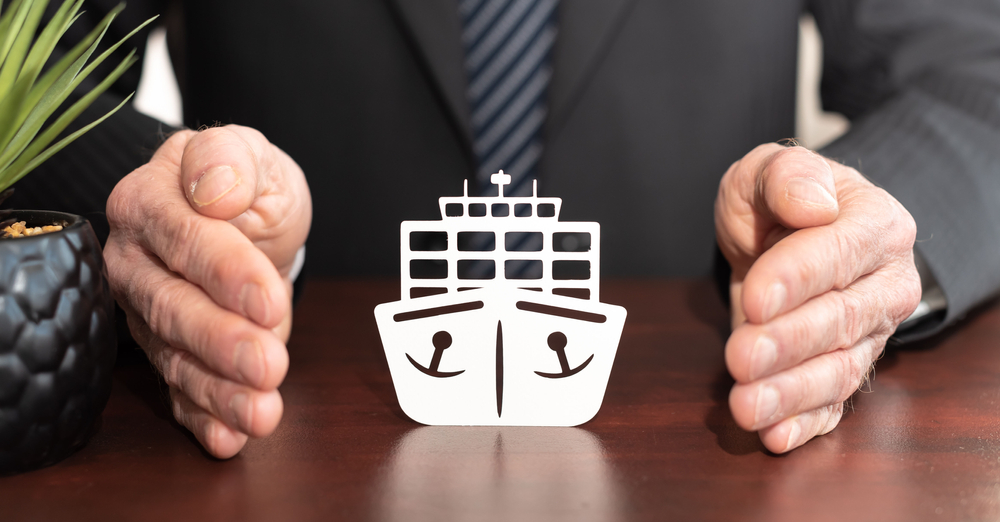Marine insurance is a crucial part of global trade, offering vital protection for companies involved in maritime activities. It is a specialized type of insurance that helps manage the risks associated with moving goods and ships over water. In the fast-paced world of international business, where goods travel long distances across oceans, having reliable insurance coverage is essential. Marine insurance provides financial security against various dangers such as cargo damage, ship accidents, piracy, and natural disasters. The history of marine insurance dates back many years, showing the significant risks and challenges involved in maritime trade.
Traditional Marine Insurance Practice:
Marine insurance has a long history dating back centuries and has always been crucial for global trade. Over time, traditional marine insurance policy practices have adapted to meet the needs of maritime businesses and manage the risks associated with sea trade. Initially, marine insurance covered cargo shipments by sea, providing protection against risks like shipwrecks, piracy, and natural disasters. As time went on, the coverage expanded to include hull insurance for ships and liability insurance for shipowners and operators. A fundamental aspect of traditional marine insurance is the concept of indemnity, where insurers agree to compensate for any losses or damages incurred by the insured party.
The Future of Marine Insurance
The future of marine insurance policy is promising but complex, combining technological advancements, shifting risk landscapes and regulatory changes. Marine insurers could improve underwriting as digitalization, data analytics and blockchain technology advance underwriting, claims management and risk assessment. Sustainability and environmental issues also drive underwriting criteria and green marine insurance solutions.
Emerging Technologies in Marine Insurance
In the dynamic world of marine insurance, new technologies are reshaping the landscape, offering fresh ways to manage risks and boost efficiency. One standout is blockchain, known for its security and transparency. By creating tamper-proof records, it builds trust and simplifies processes like policy management and claims.
Then there’s the Internet of Things (IoT), which brings real-time monitoring to ships and cargo. This data-driven approach enhances safety and helps insurers better understand risks. As insurers adopt these technologies, they’re poised to bring greater transparency and responsiveness to marine insurance, ensuring a smoother sailing for all involved.
Most Important Aspect of Having Marine Insurance.
Probably the most crucial part of possessing marine insurance policy is limiting the financial risks connected with maritime operations. Whether it includes vessels, liabilities or cargo, a marine insurance policy covers accidents, disasters, piracy or legal liabilities. Proper insurance protects assets, generates confidence among stakeholders and facilitates operation for maritime businesses.
Important Types of Insurance in Marine Insurance.
Marine insurance policy provides numerous coverages for maritime stakeholders. Three major types of insurance involved in marine insurance are:
Hull Insurance: This particular kind of insurance covers physical damage or loss from hazards like accidents, igniting or sinking.
Cargo Insurance: Cargo insurance covers items in transit and covers loss or damage during sea, air or land shipment.
Professional Indemnity Insurance (P&I): Insurance: P&I insures shipowners and operators for liability including third party liabilities resulting from collisions, pollution, salvage and crew injuries.
Each one of these insurance types covers risks and ensures resilience of maritime operations.
Marine Insurance Challenges
Marine insurance policy faces several challenges in a dynamic marketplace today. From rising natural catastrophe frequency and severity to emerging cyber risks and regulatory challenges, insurers face a myriad of challenges in providing coverage. In addition, the complexity of global trade also makes risk assessment and pricing challenging, requiring novel approaches and robust risk management frameworks.
The Largest Marine Insurer
Lloyd’s of London is the biggest and most famous marine insurer globally with a history spanning over three generations. With its unmatched expertise, global network and underwriting capabilities, Lloyd’s continues to lead the maritime insurance market with tailor made solutions to meet the requirements of maritime stakeholders.
Largest Marine Insurance Claims
Maritime industry landmark insurance claims have occurred over the years and reflect the diverse and complex risks of maritime operations. Some of the largest marine insurance claims ever include natural disasters, vessel collisions and oil spills. These claims highlight the importance of adequate insurance to limit losses and aid recovery.
Conclusion
As the maritime industry reacts to technological, environmental and regulatory changes, maritime insurance policies offer protection, protection and tenacity to maritime activities. Stakeholders can navigate the seas of uncertainty by being informed about emerging trends, challenges and best practices in marine insurance.



Comments are closed.